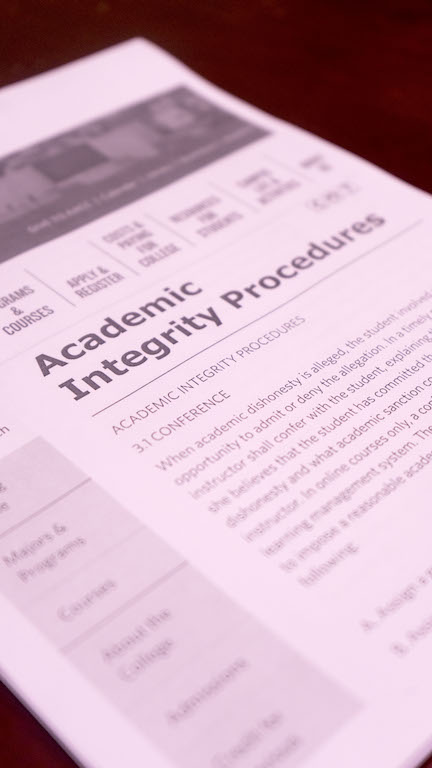Academic procedures help teacher decisions
AACC’s codes and procedures allow more leeway for professors to handle cases of academic dishonesty.
May 1, 2017
AACC professors have leeway on how to handle cases of academic dishonesty at the college.
Dr. Brian Riley, the co-chair of the college’s Academic Integrity Review Committee, explained faculty members “are free to determine their own consequence … as long as it’s upfront, in writing and consistent.”
The committee oversees cases in which students dispute whether they have cheated.
Standard procedure dictates that a professor who accuses a student of cheating must submit an incident report and notify the student. Those reports land on the desk of Associate Vice President for Learning Dr. Alycia Marshall.
The student can either admit to cheating or not, and can accept or reject whatever sanction the professor has recommended.
If the student denies both, he or she must meet in front of the committee.
Sanctions for cheating can range from a failing grade on the assignment to a failing grade or grade reduction in the course to a replacement assignment.












